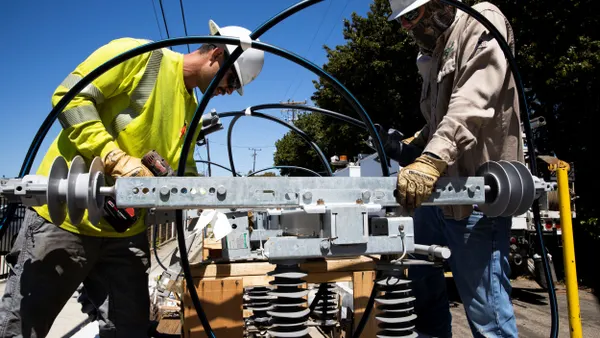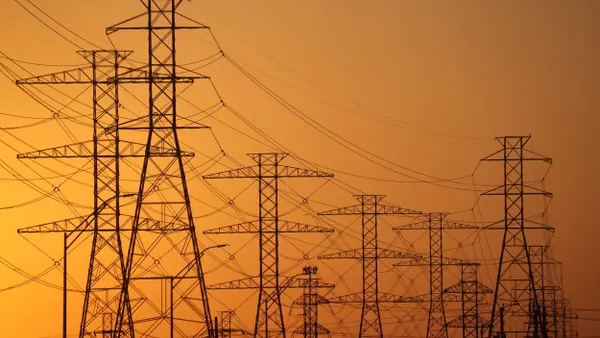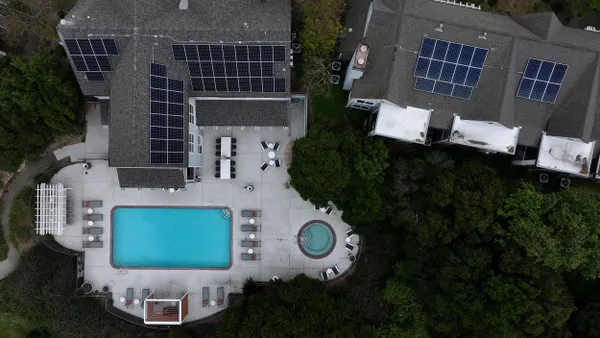Dive Brief:
- The New York Public Service Commission (PSC) on Thursday authorized investor-owned utilities to collect up to $701 million from customers to fund a new electric vehicle infrastructure program that will incentivize development of thousands of public charging locations.
- State officials say the program will stimulate $1.5 billion in new investment and provide $2.6 billion in consumer benefits over the next decade. The program aims to support development of more than 50,000 Level 2 charging plugs and 1,500 public direct current fast charging (DCFC) stations by encouraging private investment in the emissions-free transportation sector.
- The PSC order expands on a $582 million investment that New York Department of Public Service staff proposed in January, and clean transportation advocates say it makes "small but critical steps" in funding for medium- and heavy-duty fleet infrastructure.
Dive Insight:
The make-ready program has drawn praise from clean energy advocates who say New York must tackle emissions from its transportation sector to meet the state's energy and environmental goals.
"New York has this very aggressive climate law and the transportation sector is the one that's been the least-tackled," Anne Reynolds, executive director of the Alliance for Clean Energy New York, told Utility Dive. "This is a big step out of the gate for the state to make a down payment on achieving a green transportation system."
New York plans to decarbonize its transportation sector and reduce statewide carbon emissions 85% relative to 1990 levels. The state also has a goal of getting 850,000 zero-emission vehicles on the road by 2025.
The PSC's order was based on a staff white paper published in January that called for a smaller investment. The original proposal was broadly backed, regulators said in their order last week, noting that "all parties are generally supportive of the white paper program proposal."
"In most cases," the PSC said, the cost recovery period for charging assets will be 15 years or greater, which will result in a "minimal bill impact on the average residential bill."
Consolidated Edison said it is reviewing the order and did not give an estimate of customer bill impacts. A utility spokesperson said the power company is supportive of "making it more convenient for drivers and businesses to adopt electric vehicles, which are essential for our state and city to meet their environmental goals."
Environmental Defense Fund (EDF) said regulators were right to expand on the original white paper proposal to include funding for charging infrastructure aimed at fleets.
The PSC's order "recognizes the legitimacy of calls from stakeholders to address the requirements of both passenger EVs as well as trucks and buses," EDF Energy Lead Counsel Elizabeth Brooke Stein wrote in a blog post.
The order rolls out a $15 million make-ready pilot program for medium- and heavy-duty electric vehicles that will support a reduction of diesel emissions located in disadvantaged communities and directs $10 million toward utilities partnering with transit authorities.
"This innovation competition will give heightened consideration to last-mile movement of goods and people in disadvantaged communities," Brooke Stein wrote. She said the inclusion of these programs is a "small but critical steps in the right direction."
The PSC said its order allocates $206 million toward "equitable access and benefits for lower-socio-economic and disadvantaged communities." Those communities will also be eligible for a higher incentive, supporting up to 100% of the costs to make a site ready for EV charging. Other make-ready work will be supported at either 50% or 90%, depending on whether stations utilize standardized plug types and meet accessibility requirements.
The order also directs the PSC to create a Fleet Assessment Service that includes site feasibility and rate analysis to aid fleet owners in identifying savings opportunities. And the New York State Department of State will collaborate with the New York Power Authority to expand deployment of DC fast chargers in downtown communities through a revitalization initiative.
"Overall, we were really happy to see that the order was so comprehensive," Reynolds said.














